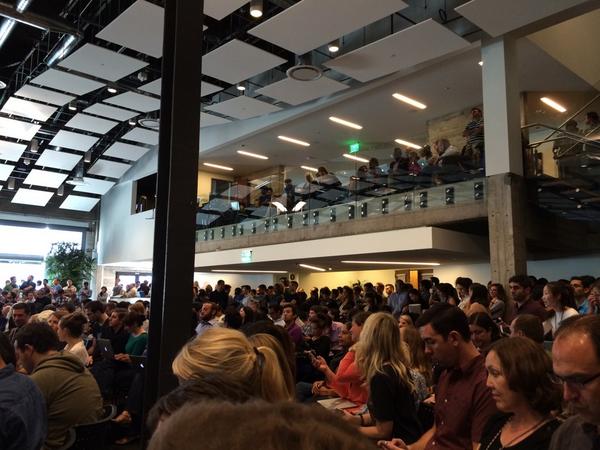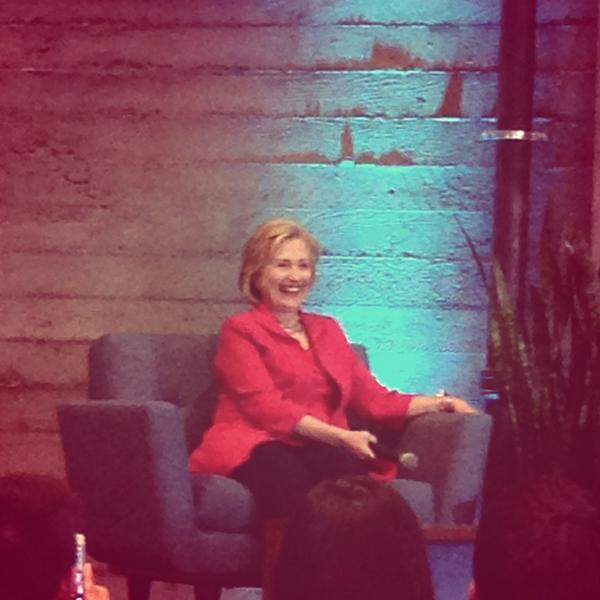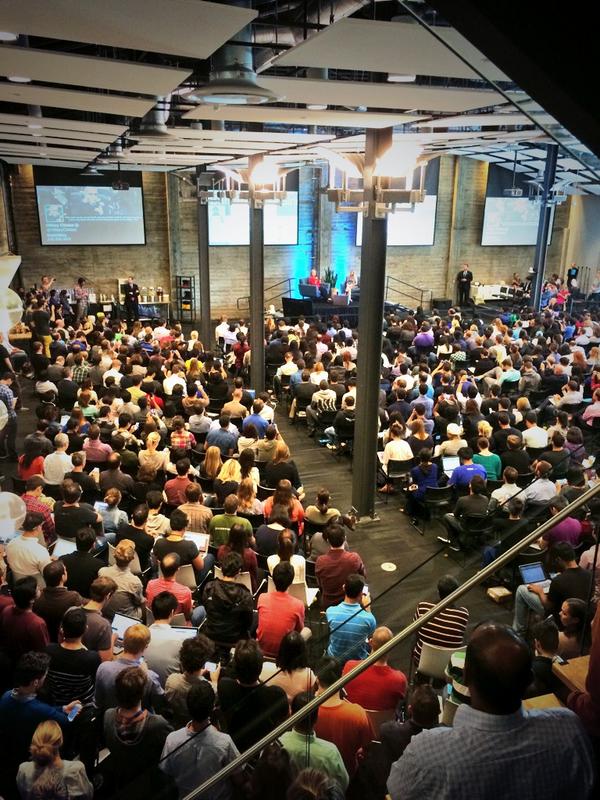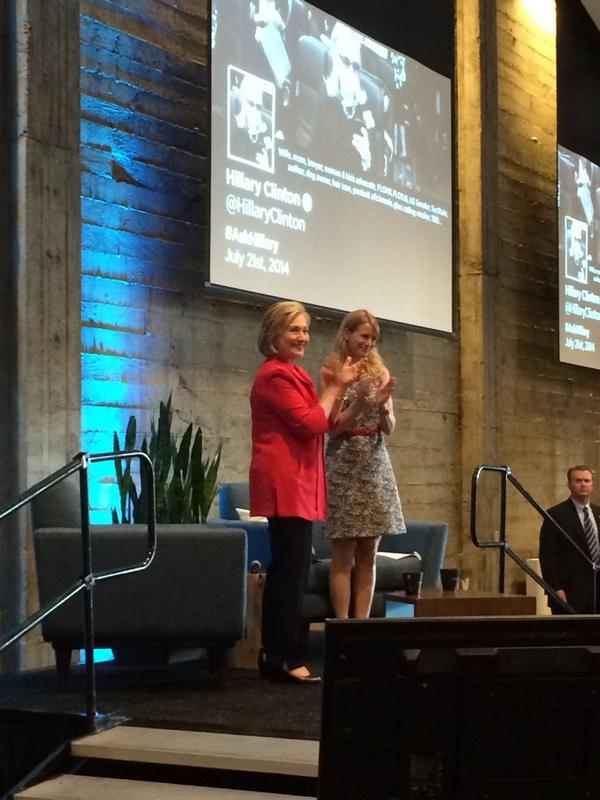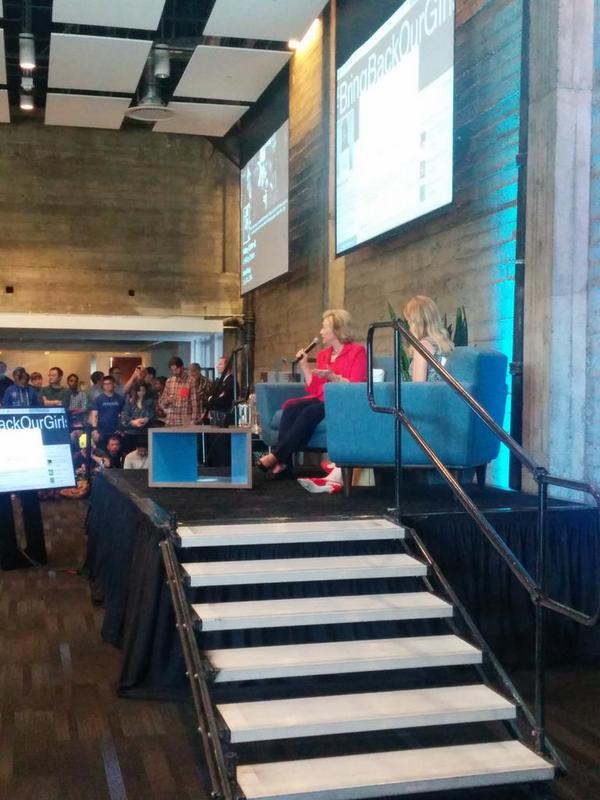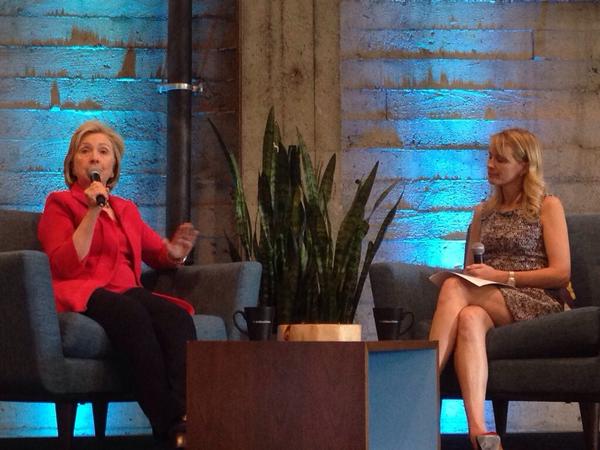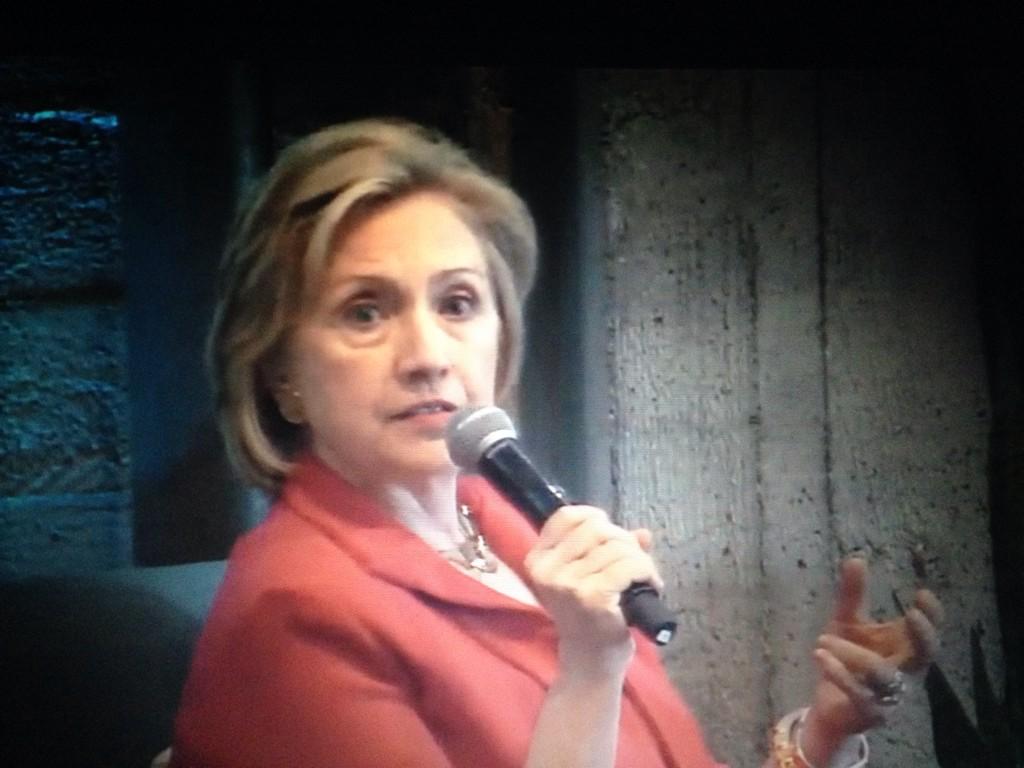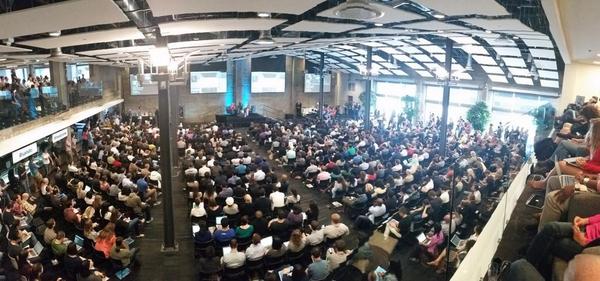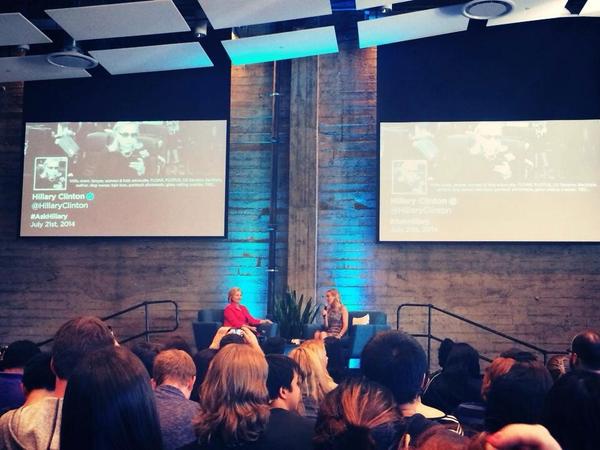This afternoon Hillary sat down at the
Aspen Ideas Festival with Walter Isaacson for a conversation, that was fed live on Facebook from the Aspen Institute where the festival is being held, about her memoir,
Hard Choices,
and her experience as secretary of state . Signed copies of the book
were available for purchase following the event which ran for roughly an
hour plus.
Beginning with a mention of the
anxiety she perceived nationwide in the course of her book-signing
tour, she stressed an agenda of rebuilding trust and making
evidence-based decisions.
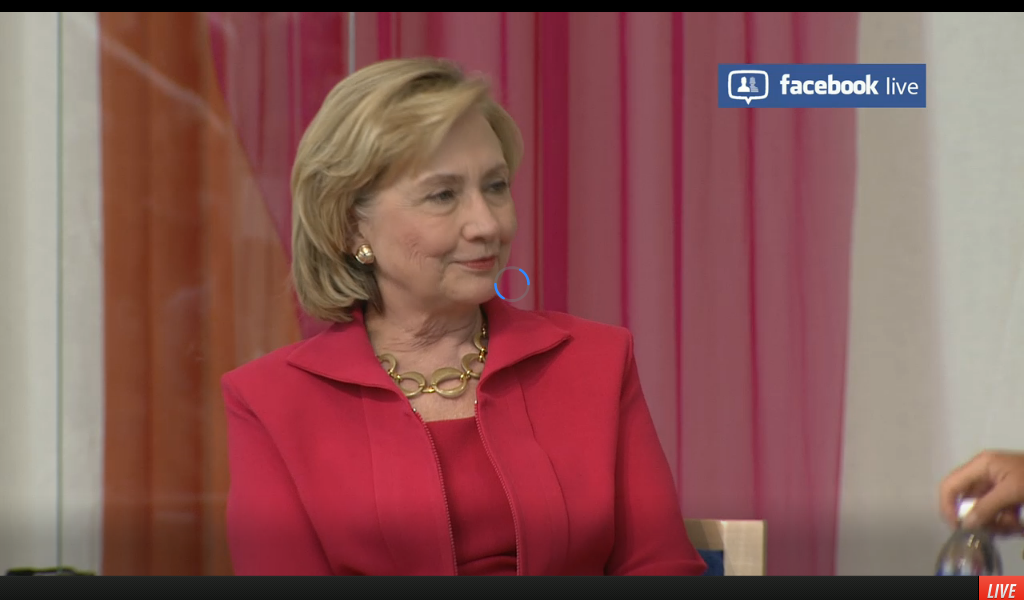
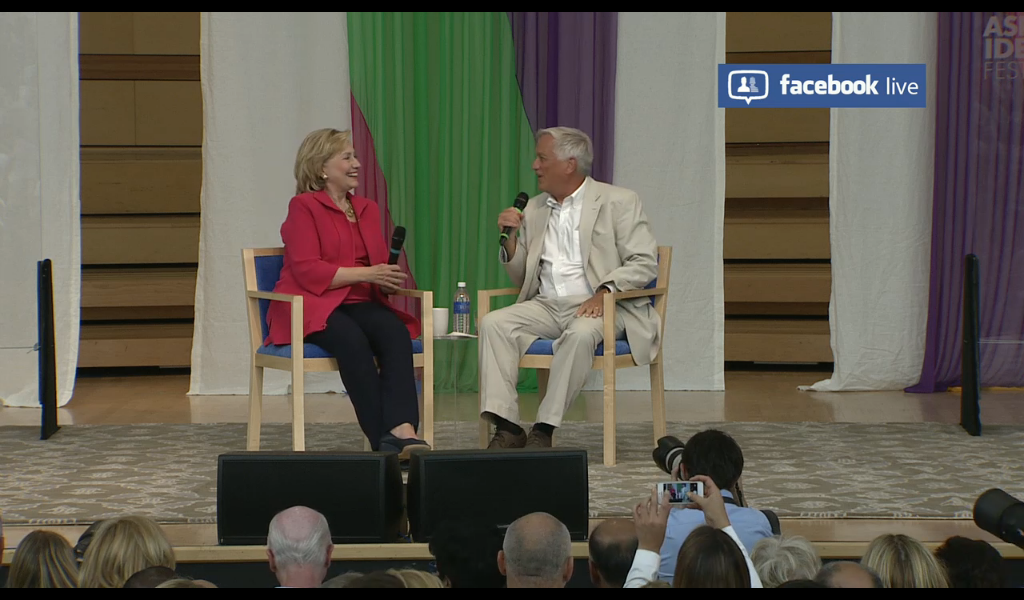
Isaacson
started the ball rolling with a question about the issue of arming
rebels in Syria. Her chapter on that topic is entitled "A Wicked
Problem." She refitted that issue into a more subtle problem of how to
empower moderates and marginalize extremists, noting that she and David
Petraeus, who was in the audience and a would later also address the
gathering, struggled over lunch at her house with the question of
strengthening the opposition to Assad's government.
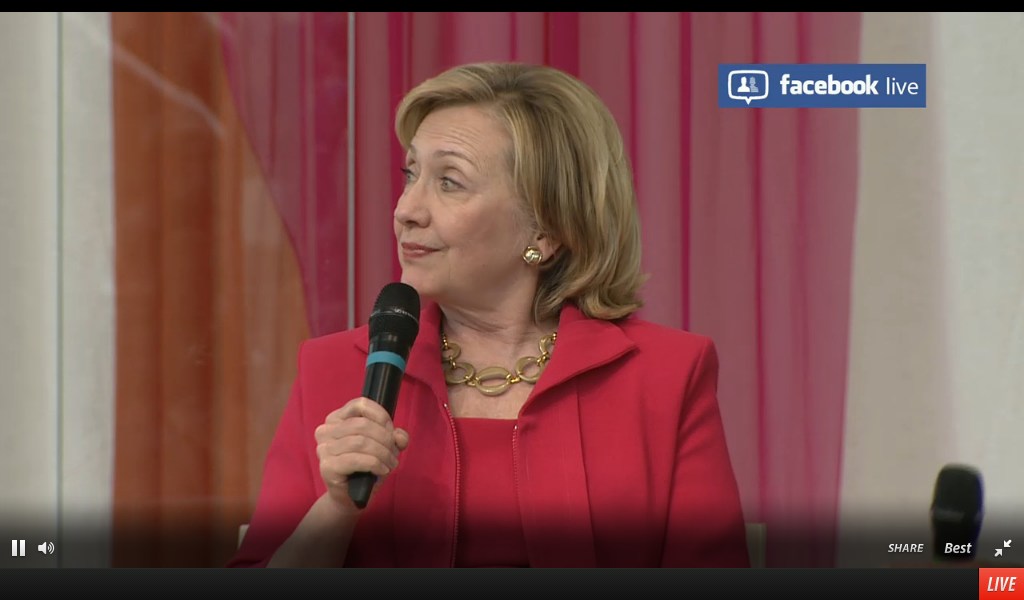
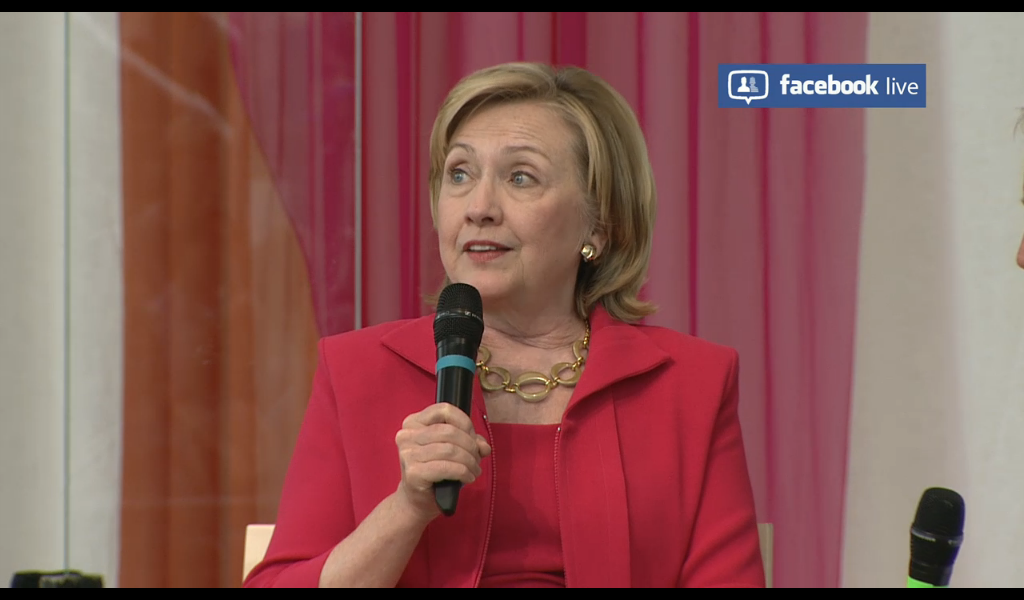
On
the subject of Iraq, she noted that Maliki has made bad decisions, but
that he has won the election and that our policy is to support elected
governments even though we have not always followed that policy.
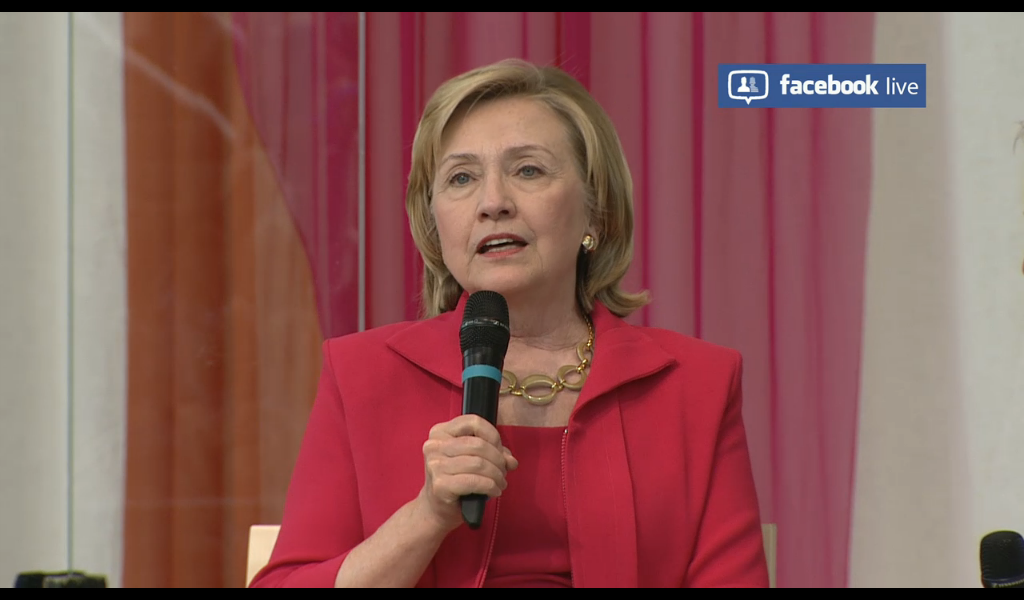
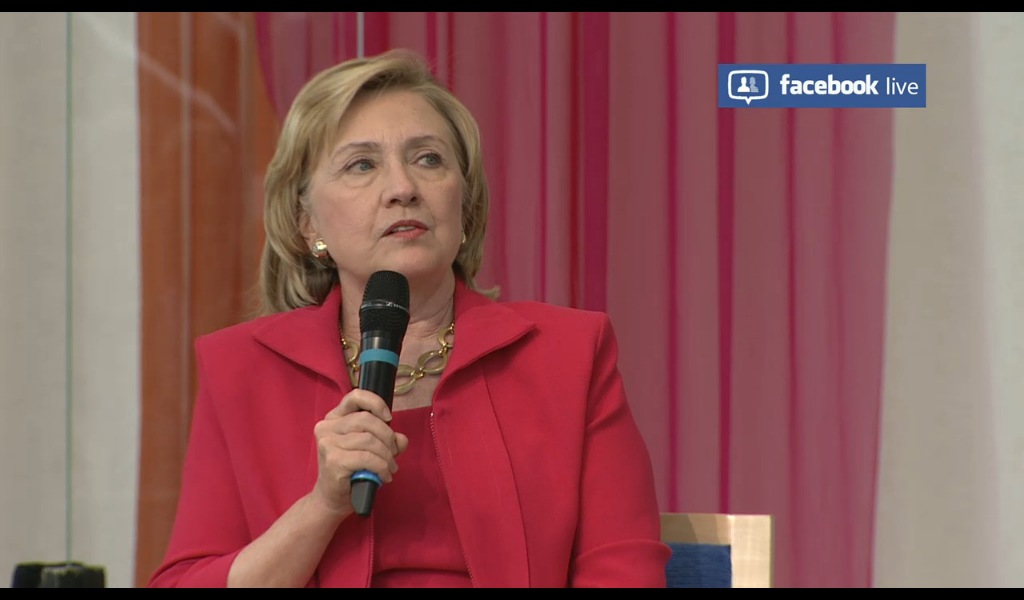
In
as far as her own vote to empower President Bush to enter armed
conflict in Iraq, she focused on the word "mistake" and her long
resistance to utter it. (She stressed in this segment that President
Obama was not in the Senate when that vote was taken.) Her reluctance
to say that vote was a mistake, she stated, was the message she feared
that would send to the troops.
Russia and her relationship with Putin was the topic of several remarks. She corrected Isaacson's original comment about
shooting polar bears and assured him that she would have been
tagging them had Putin taken her along on the mission.
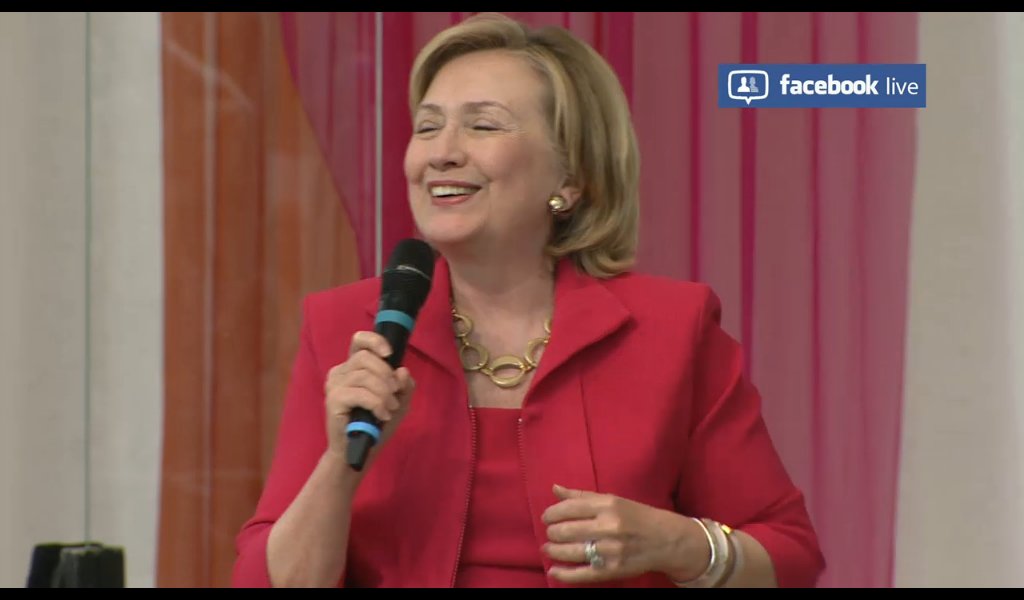
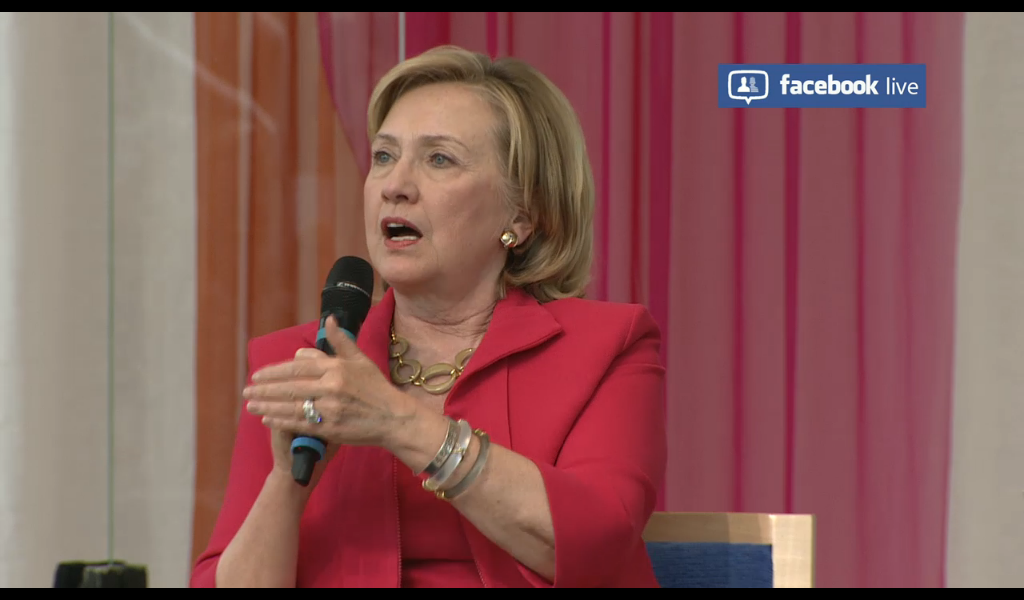
Reminding
the audience that at the time the Obama administration came to office
Russia had just invaded Georgia and occupied two regions (that it
continues to occupy), she said that the U.S. agenda at the time included
getting Russia on board with sanctions on Iran, crafting a new START
treaty (and getting it ratified - perhaps the more challenging part),
and a supply route through northern Russian to Afghanistan. That
agenda, by the way, was accomplished.
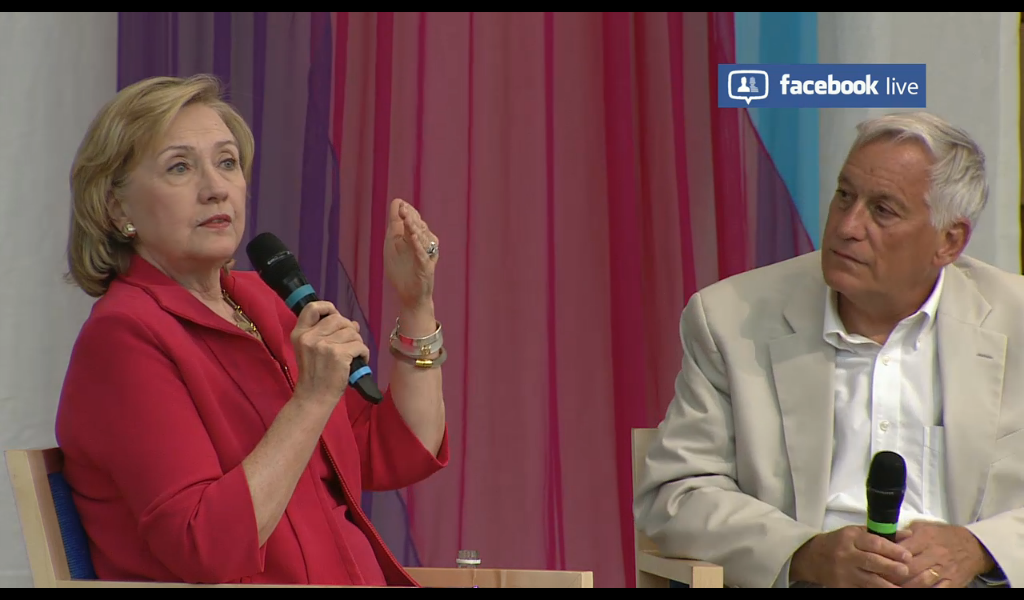
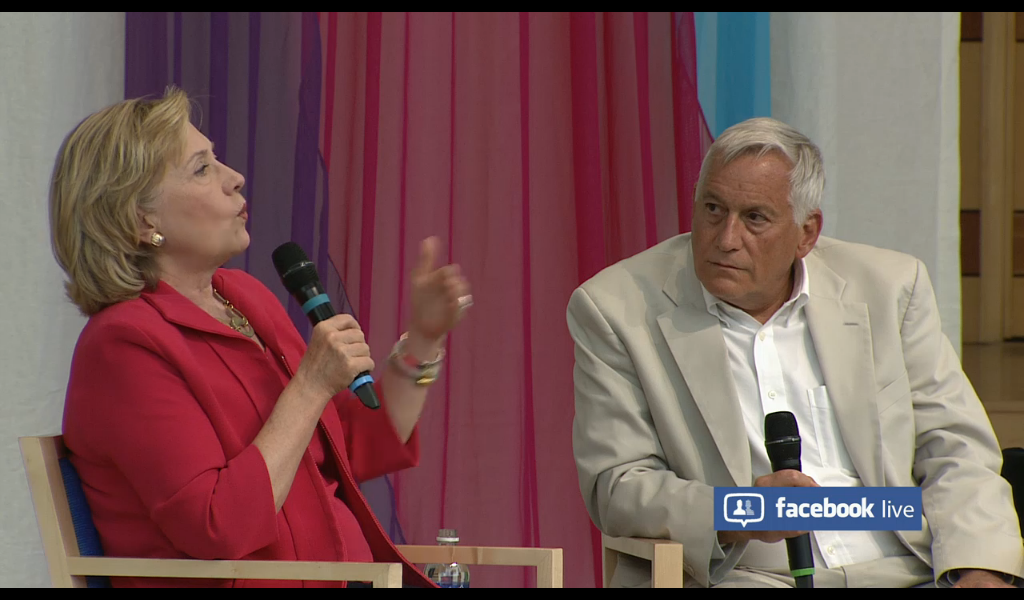
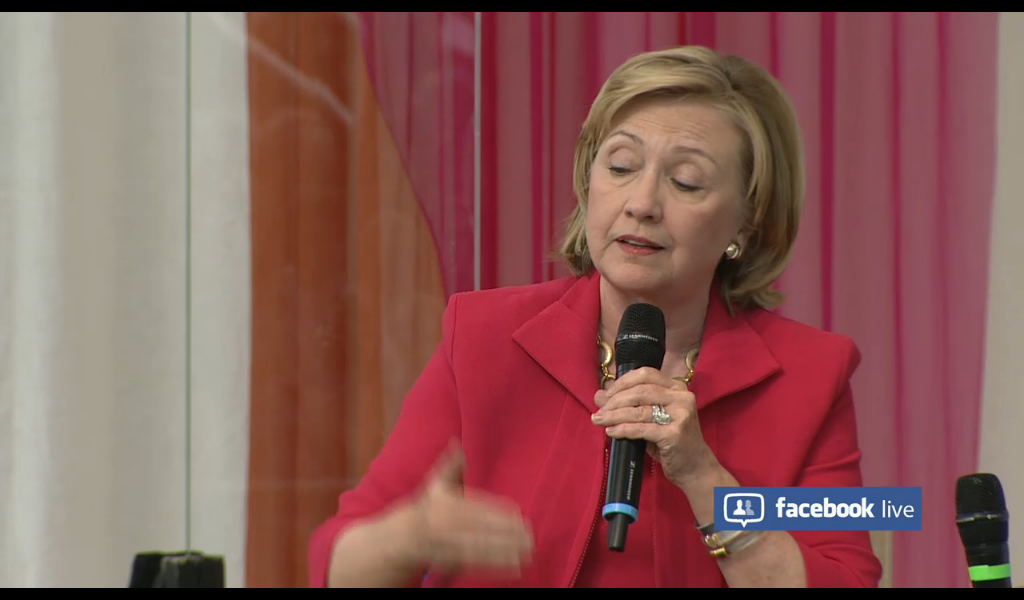
Recalling
Fall 2011 when Putin and Medvedev, wearing black motorcycle jackets,
announced that they were essentially about to switch roles and the angry
demonstrations that engendered across Russia, she said Putin blamed her
personally for the unrest. The retribution he exacted included
boycotting the G-8, intransigence at a G-20 in Los Cabos, Mexico on
Syria issues, kicking USAID, long resident in Russia, out of the
country, and enacting a variety of anti-LGBT laws as a deliberate
political act.
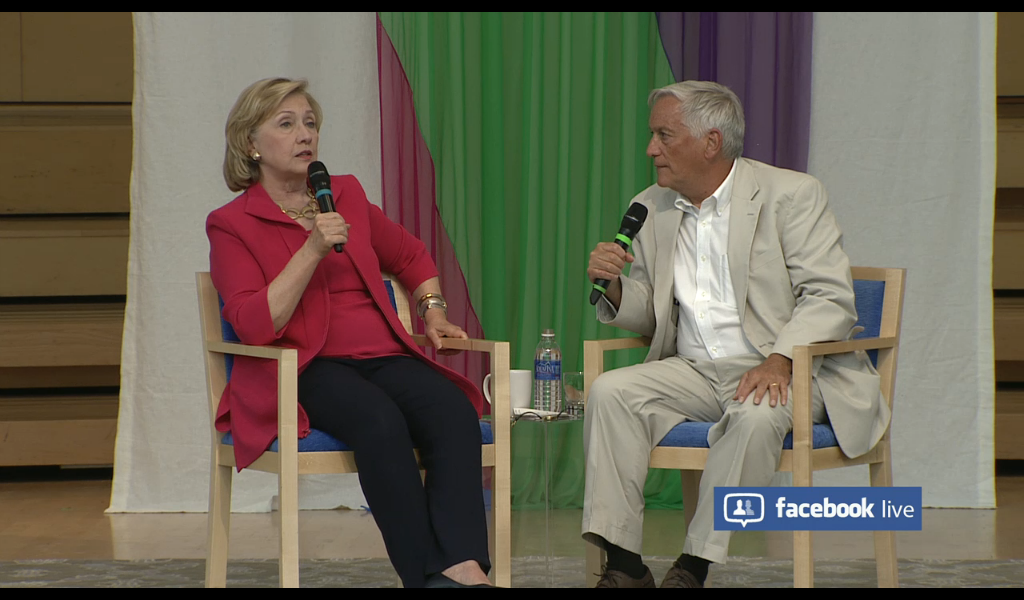
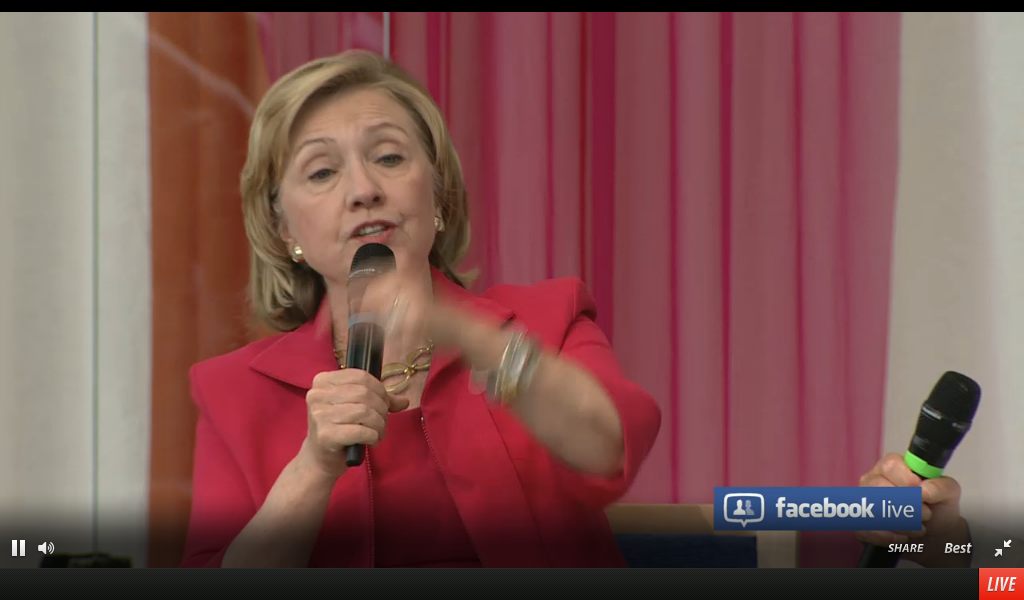
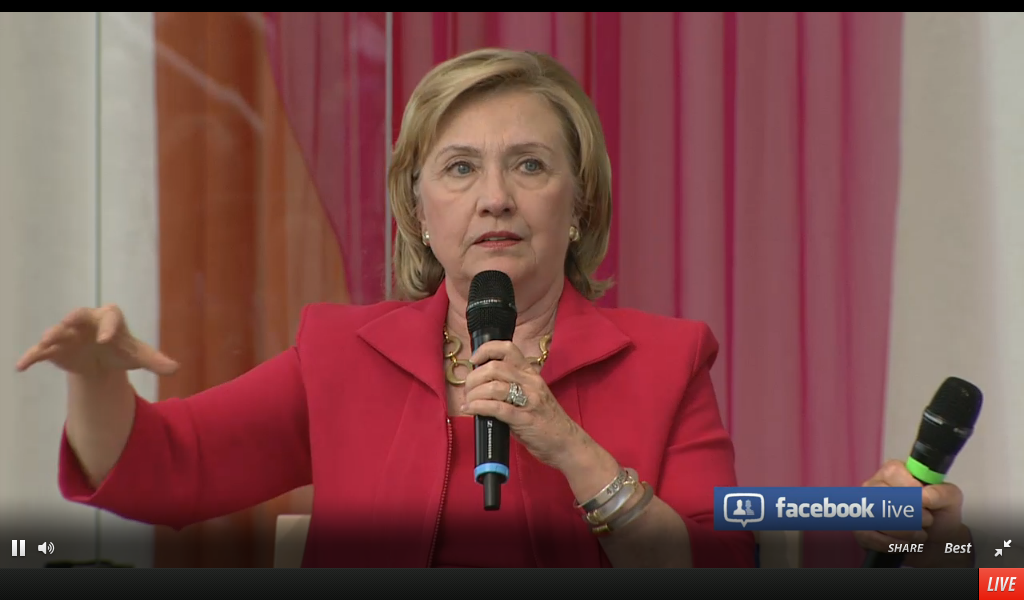
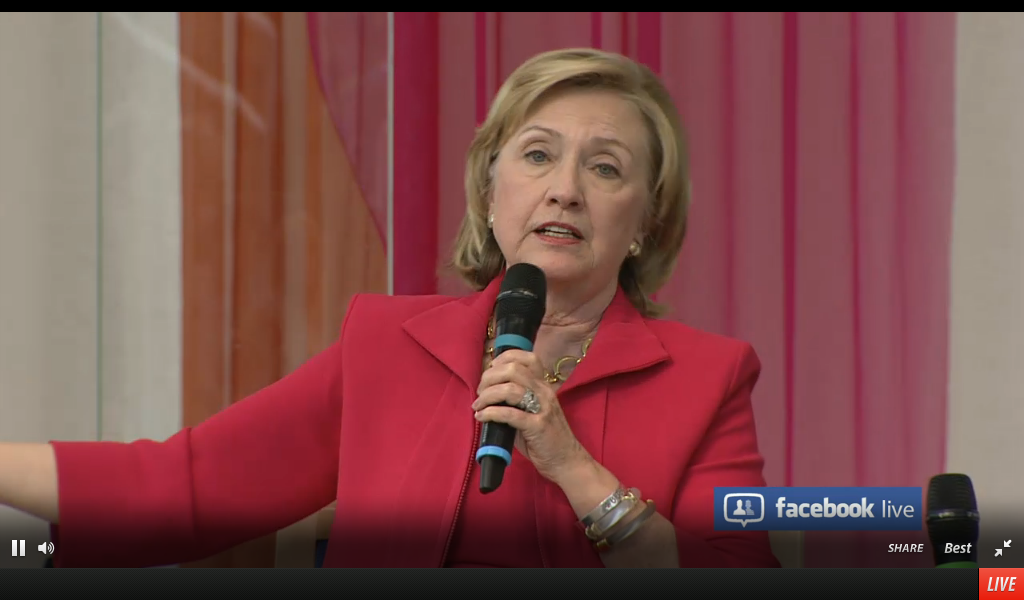
On
the subject of Sergei Lavrov, her Russian counterpart during her
tenure, she said he is very smart and served both Medvedev and Putin
very well. Personal take: despite much attention to the original
"reset' upon her first formal meeting with Lavrov, she had a good
working relationship with him and together they accomplished a great
deal in the interest of both of their countries.
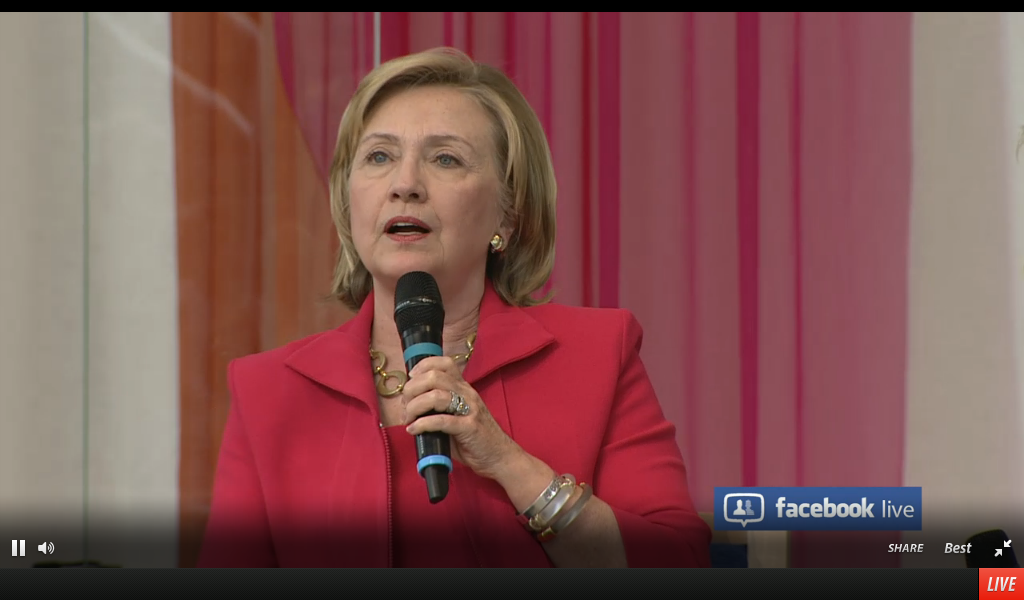
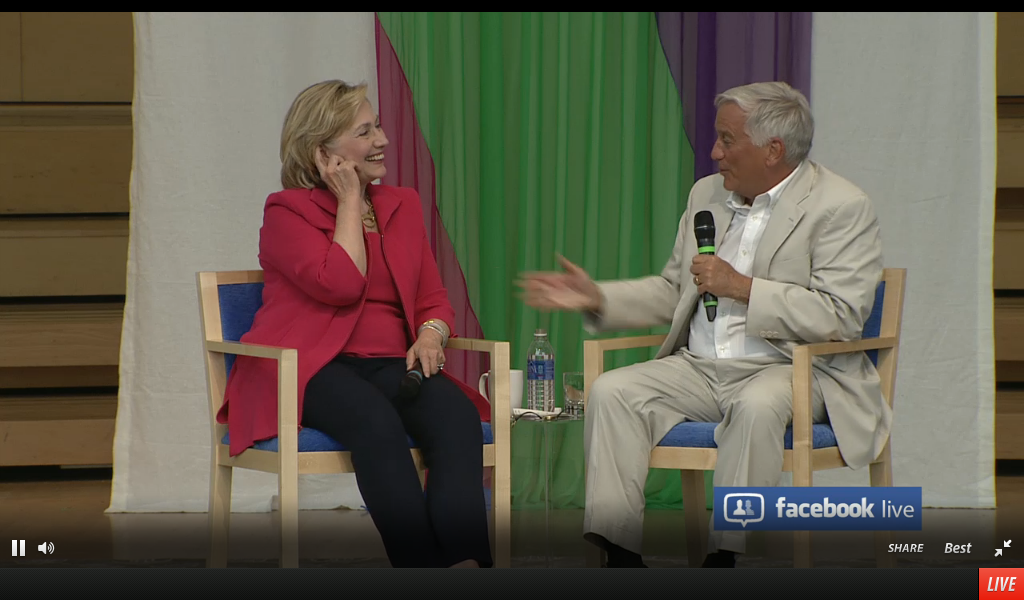
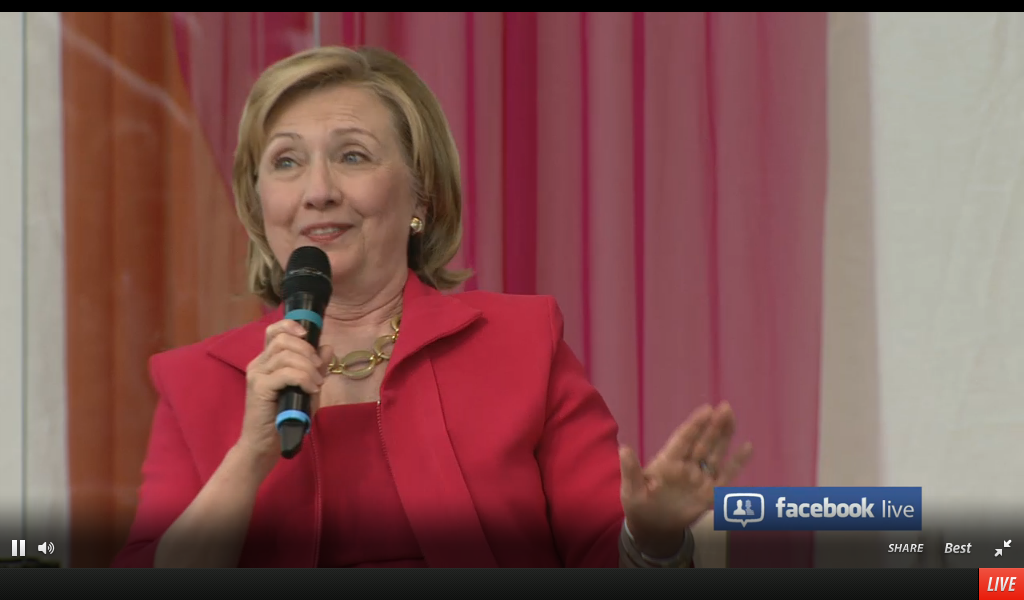
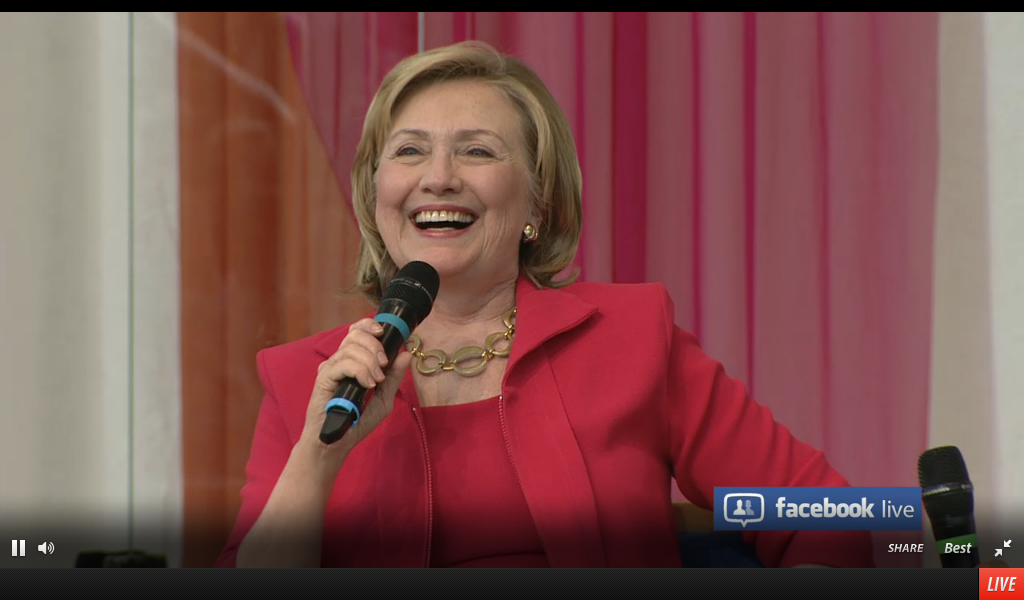
Upon assuming office, Hillary explained, she thought we had to
redirect our leadership, promote our values, pursue our interests, and
protect our security. To accomplish these ends, she set markers.
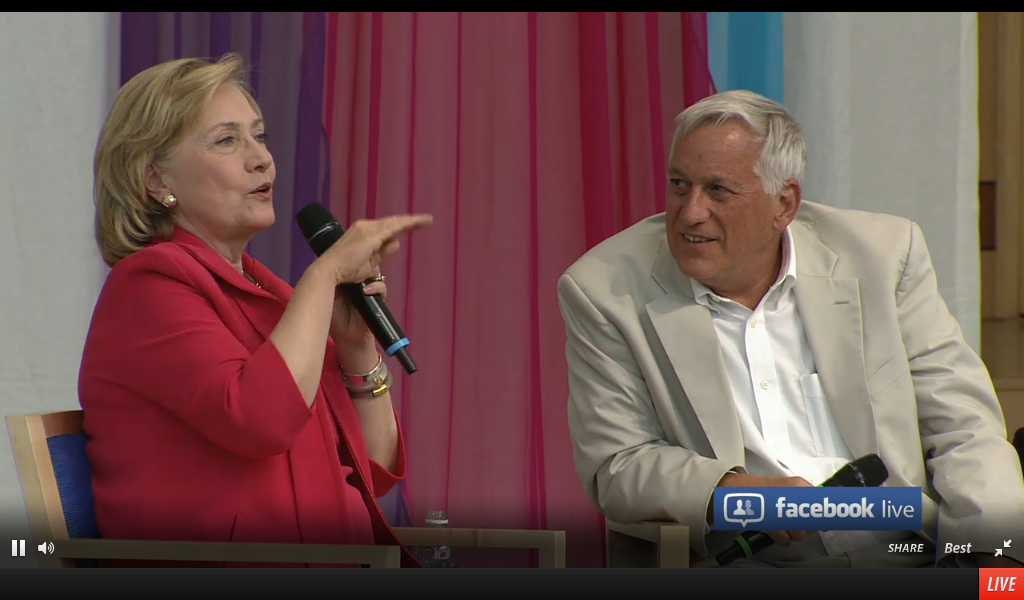

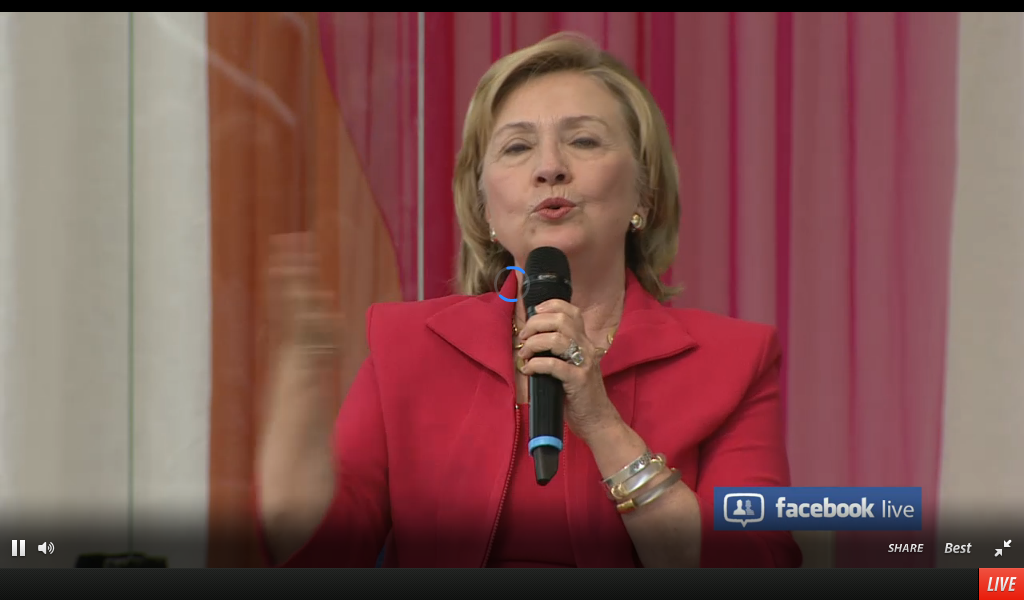
The
first was women and girls. Harking once again to evidence-based
decisions, she said there is evidence that contributions from this
sector of society are positive for nations. The second marker involved
the balance between freedom of religion and freedom of speech. People
should have the right to practice their faith, but they also have the
right to express opinion. The final marker was the LGBT community and
how they are treated in a society.
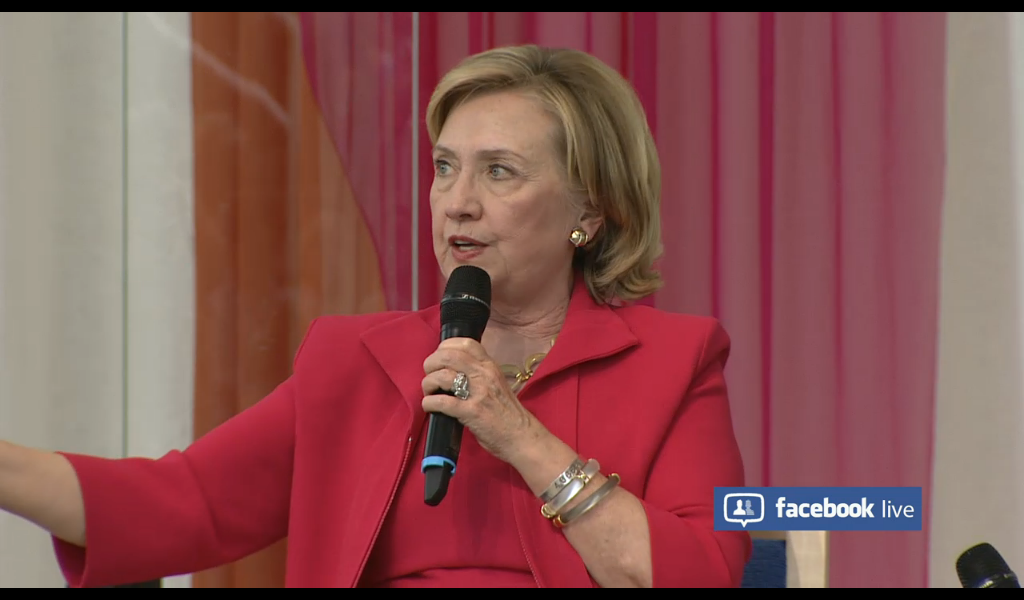
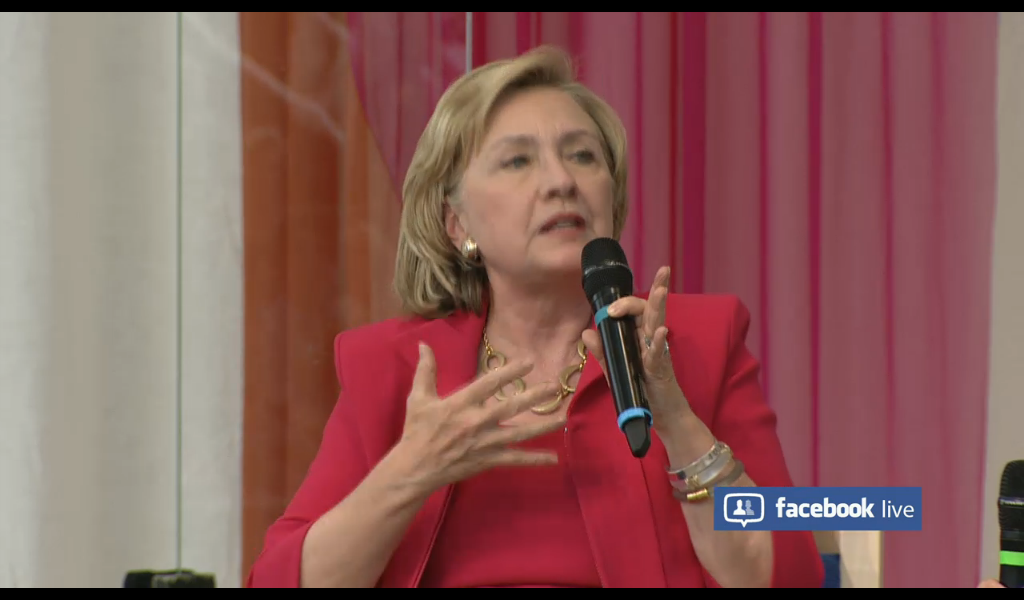
On
the subject of values v. interests, she cited the case of the Chinese
dissident whose case first came to her attention when she was at home
preparing to leave for an important trip to China. She was told he had
escaped from house arrest and was headed for the U.S. Embassy where he
intended to seek refuge. She said it was a
clear choice for her. She made the decision and we took him in.
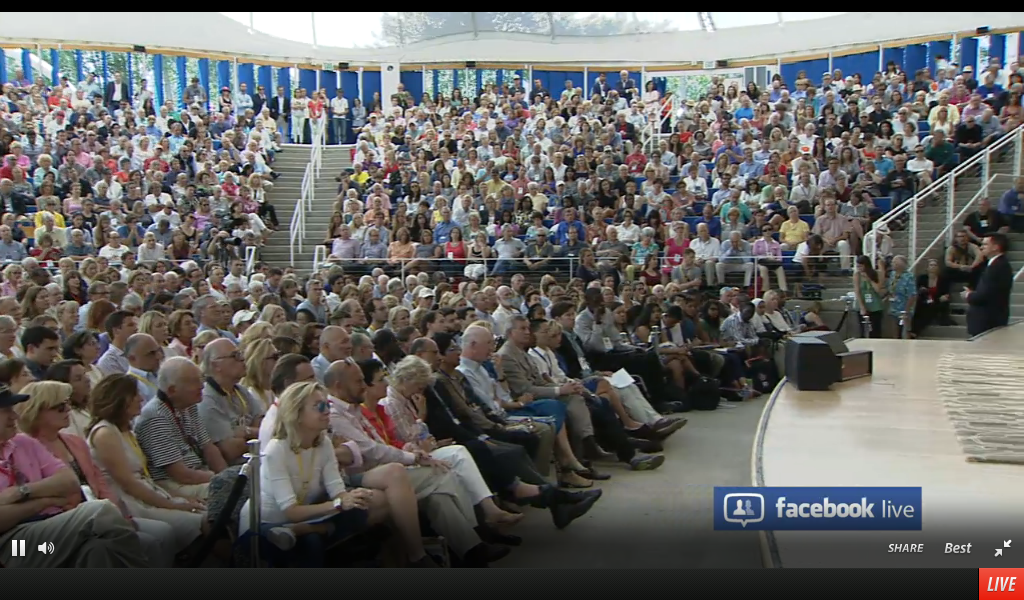
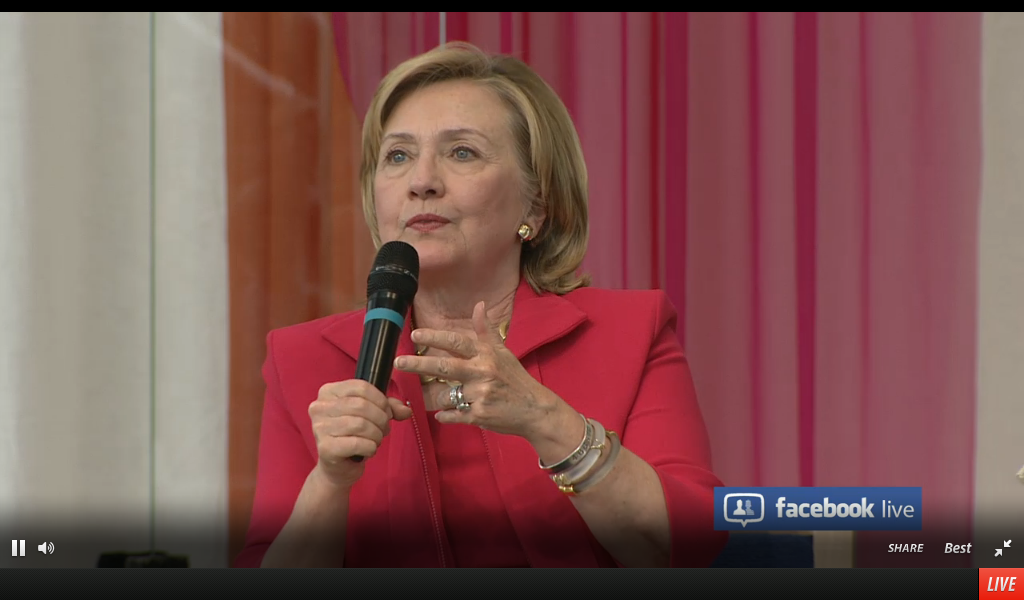
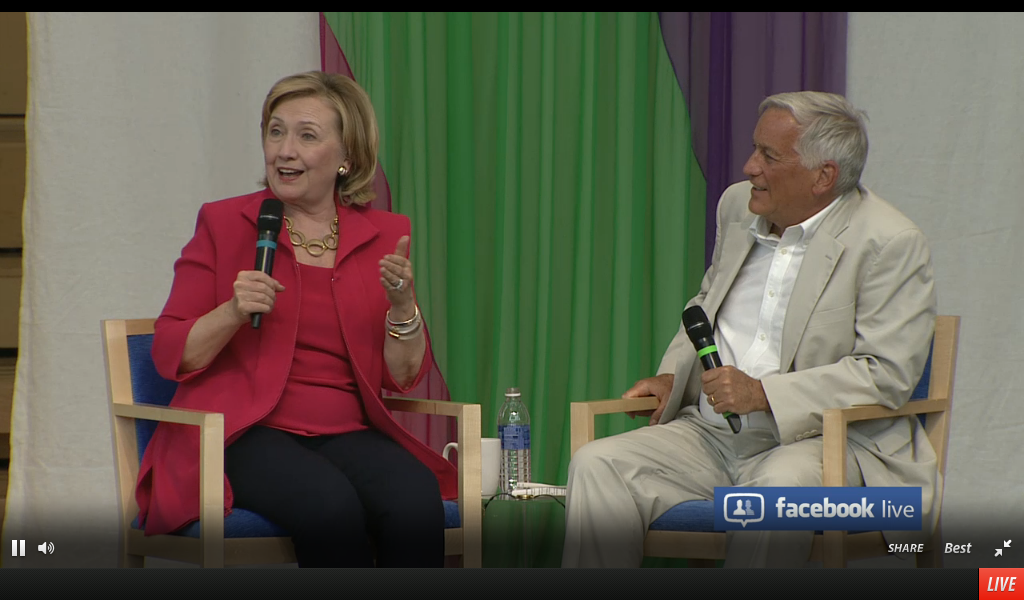
Upon
further examination of his case she discovered that his intent was not
originally to leave China. He, and other activists, wanted the high
officials in Beijing to become aware of their mistreatment by local
officials and harbored a firm belief that if high government officials
knew about this they would stop it.
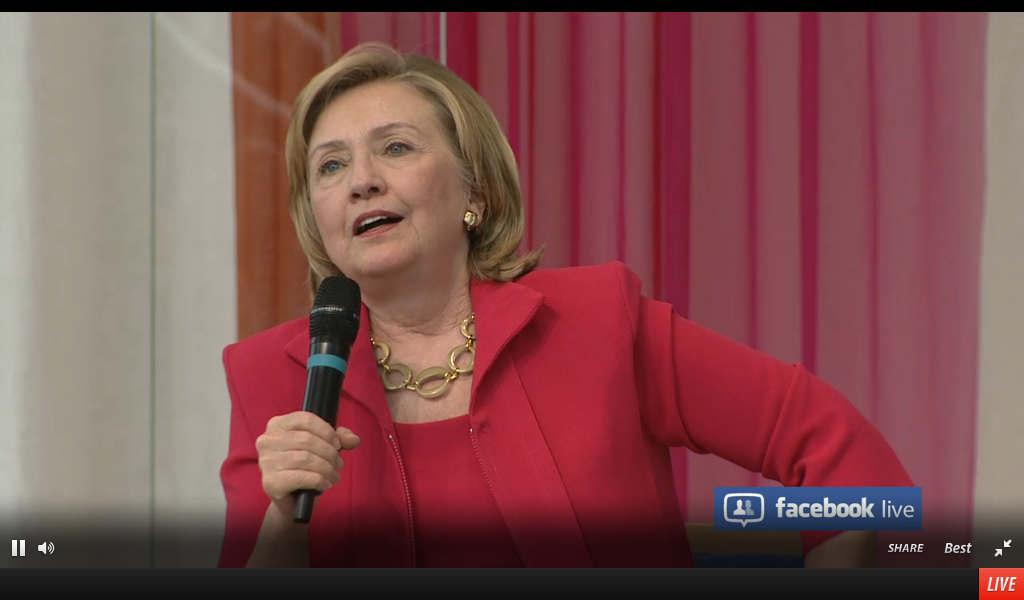
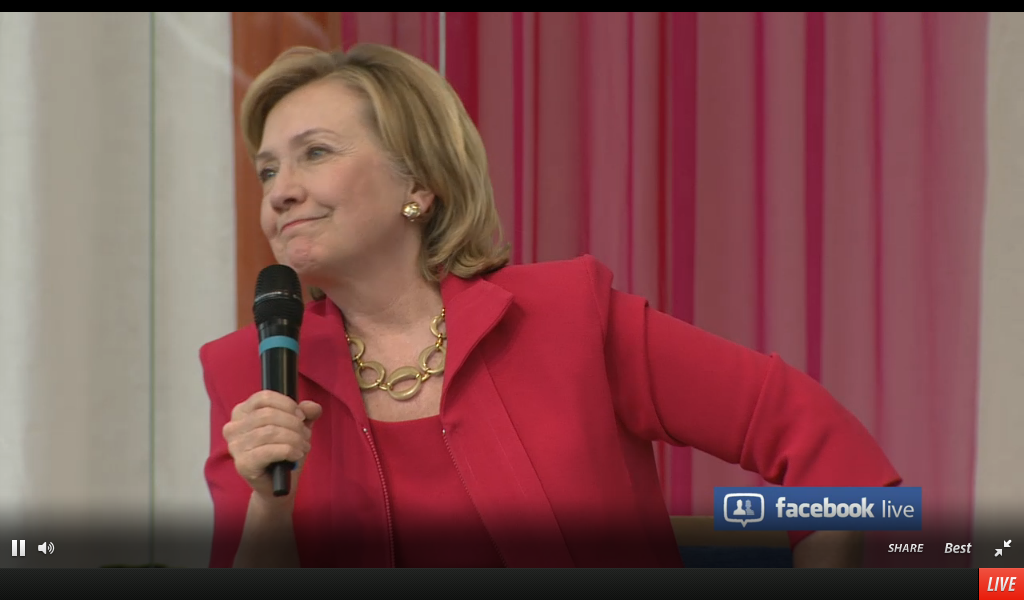
Ultimately,
she said, Chen wanted relief from oppression by local officials and to
go to law school. In the ensuing drama, he called the U.S. Congress on
the cell phone we had given him. Republican congressmen held the phone
to a microphone on the floor of Congress. He wanted to come here to
study. She called the ordeal an exercise in high-stakes diplomacy that
ultimately was resolved through what she alternately called "smart
power" and "soft power."
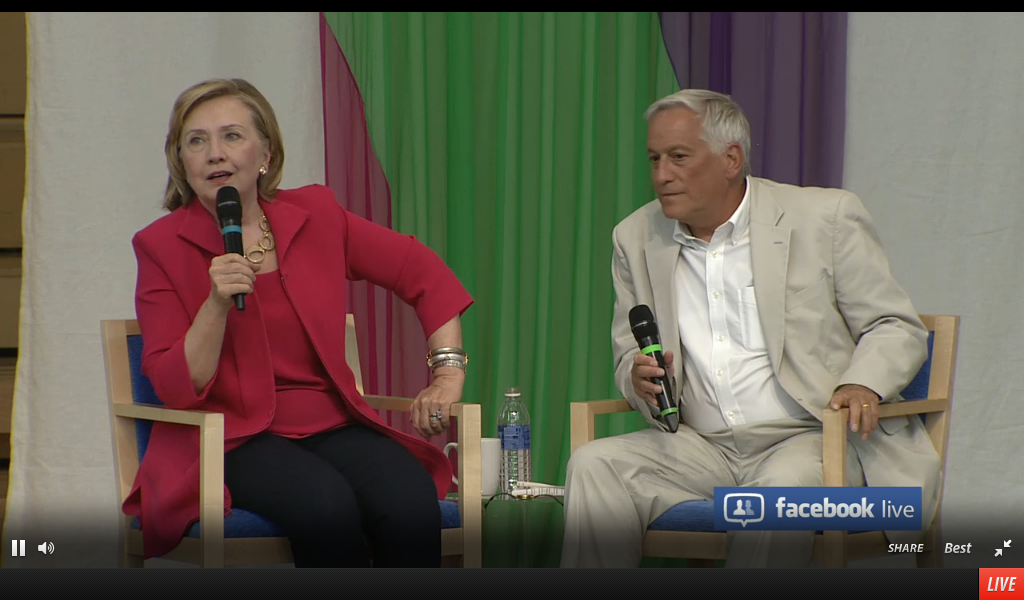
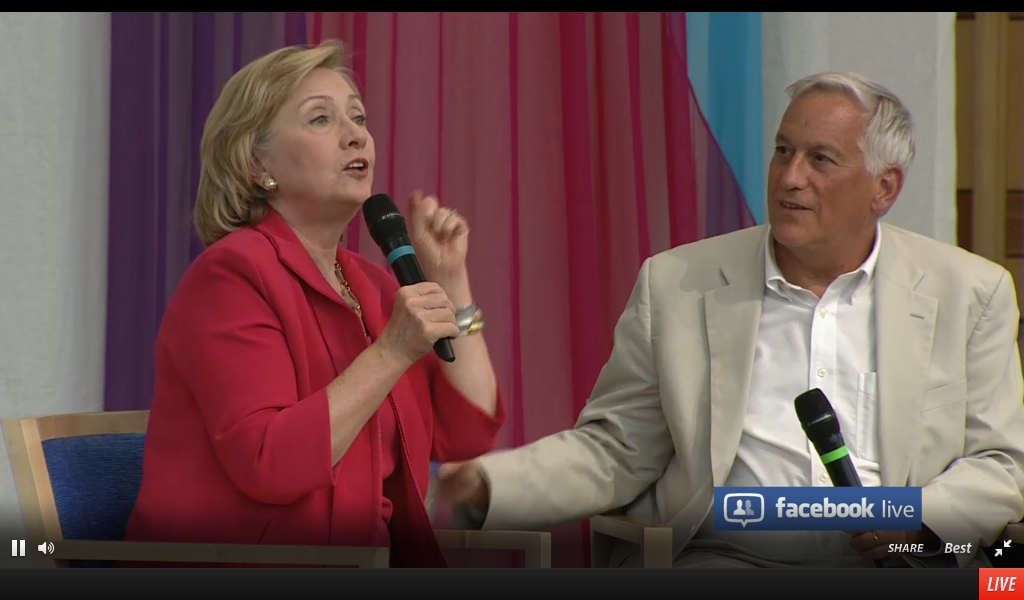
At
an event where an American student spoke in Mandarin about his
experience studying in China and a Chinese student related her
experiences studying in the U.S. the Chinese saw the value of
educational and cultural exchange and the crisis was resolved.
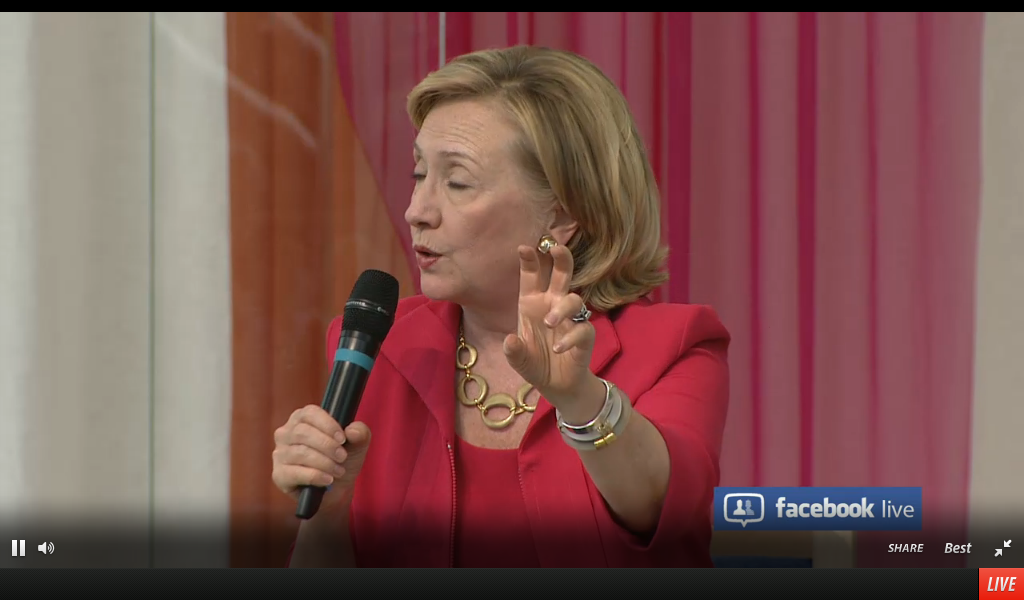
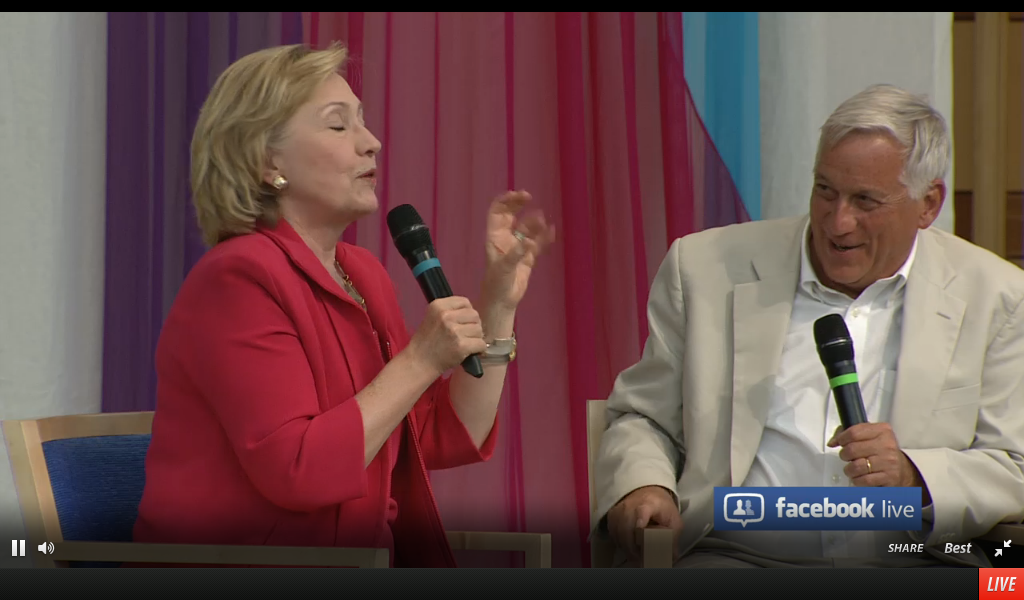
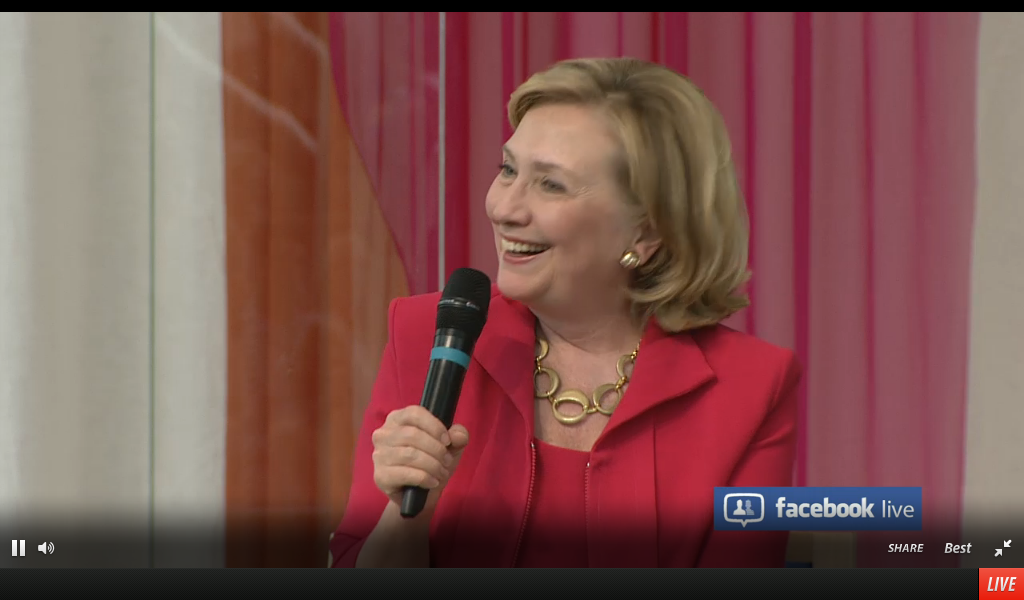
Finally
the floor was opened to questions posted on Facebook. She stated that
she, her family, and the Clinton Foundation all support the idea,
championed by Stanley McChrystal, of a National Year of Service. She
emphasized the value of volunteering and urged people to get out of
their comfort zones.
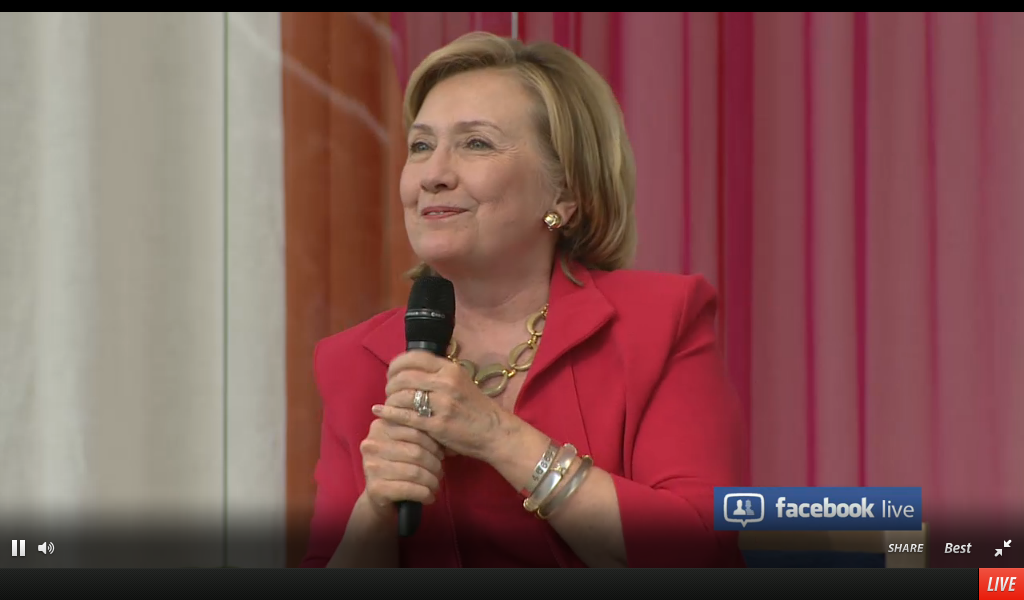
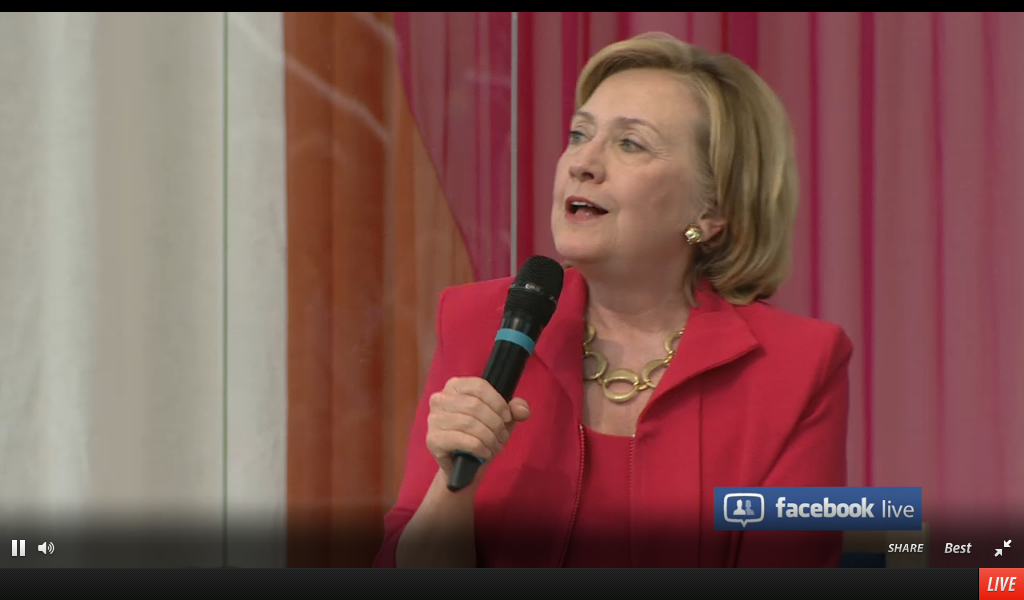
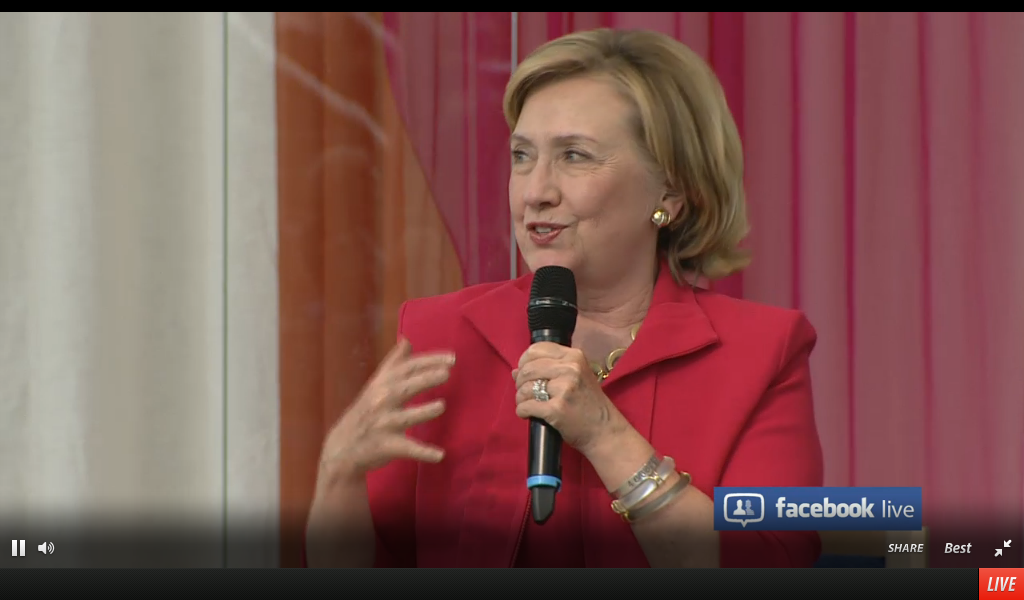
On voting: People have to vote and it should be as easy as possible.
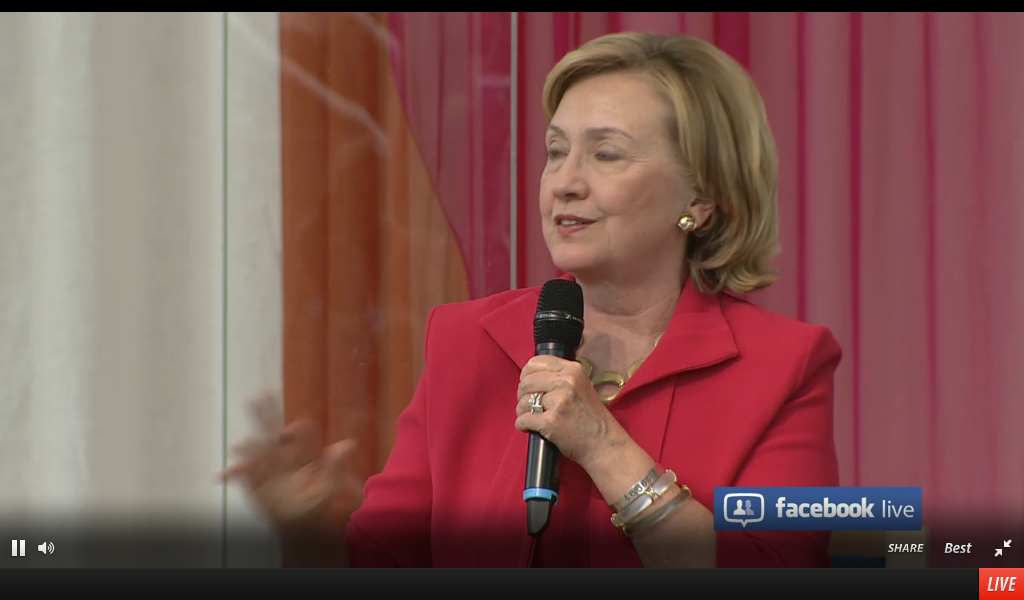
On
the SCOTUS Hobby Lobby decision: Deeply disturbing. Women and girls
are "the canaries in the mine." Erosion of women's rights indicates an
anti-democratic trend in our society that she described as a slippery
slope.
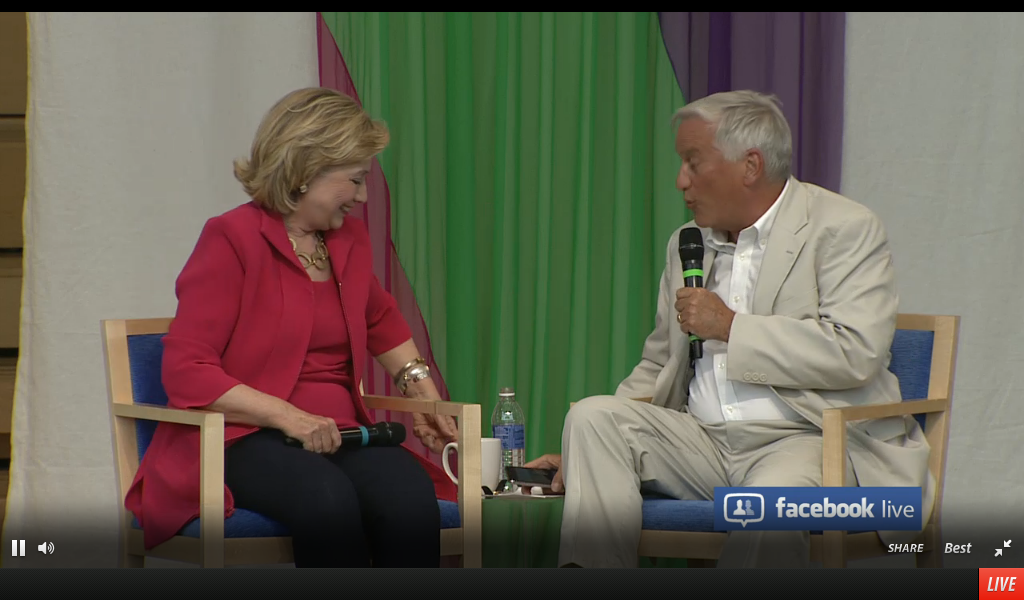
Of
Obamacare: Her exhortation to "mend it not end it" had the ring of a
campaign slogan that we might be hearing as the mid-term campaigns get
underway if Democrats are savvy enough to follow her advice to campaign
on that issue.
"Are you going to run for president?" is the wrong
question, in Hillary's eyes. The questions should be "What is your
vision for America?" and "How do you plan to get us there?"
She
ended by affirming that America matters to the world, and the world
matters to America. She said there is no escape in an interdependent
world . We need to stay engaged.
This is the link to the video:
https://live.facebooklive.com/videos/446
Shortly after delivering these remarks, Hillary tweeted this.
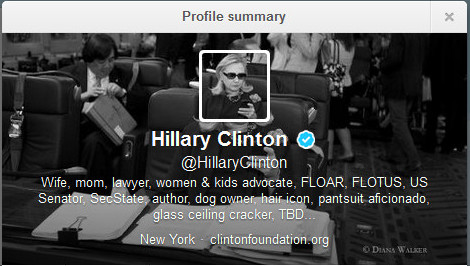

 Christian Storm/Business Insider
Read more >>>>
Christian Storm/Business Insider
Read more >>>>





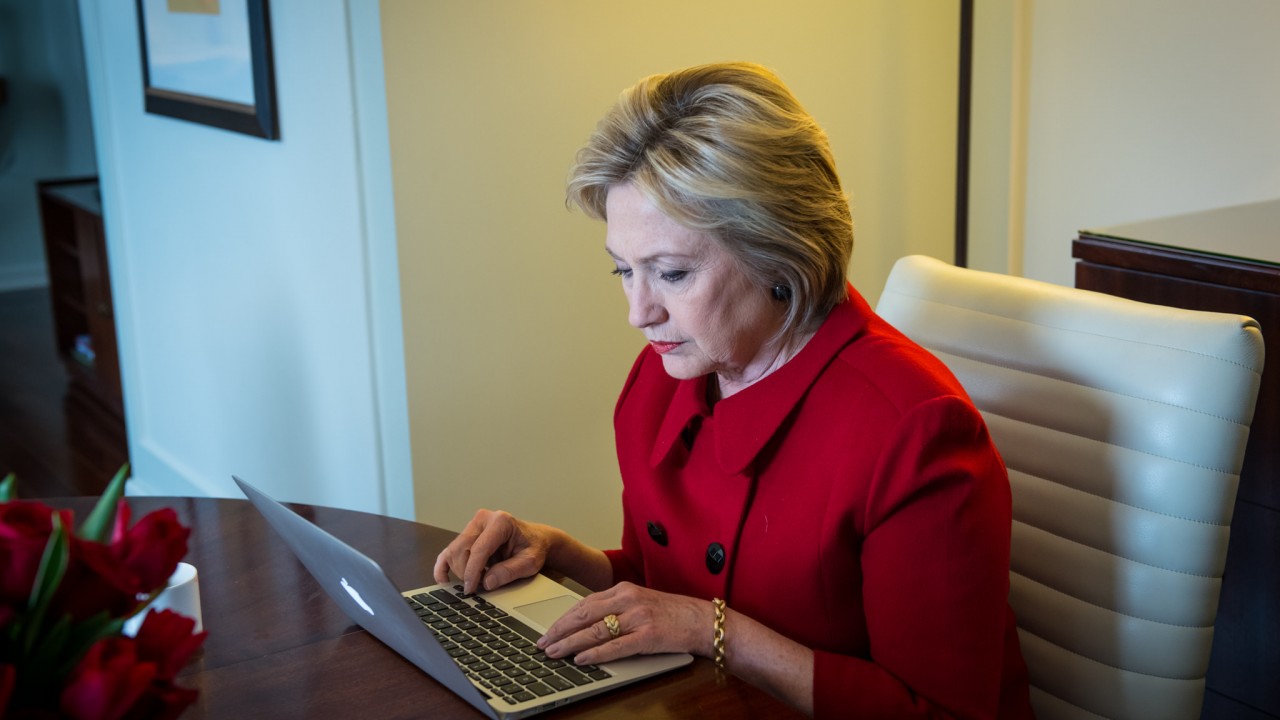
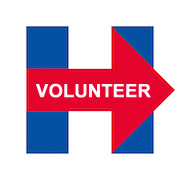

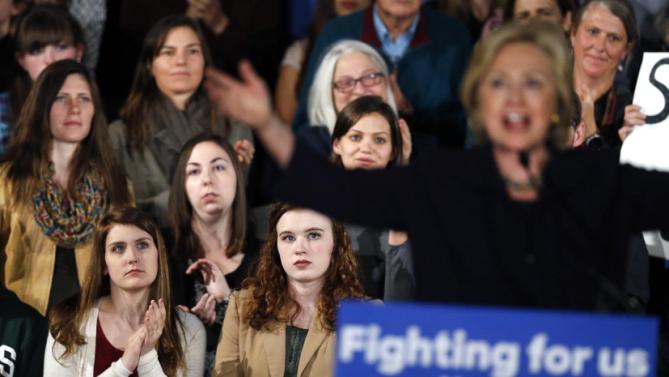
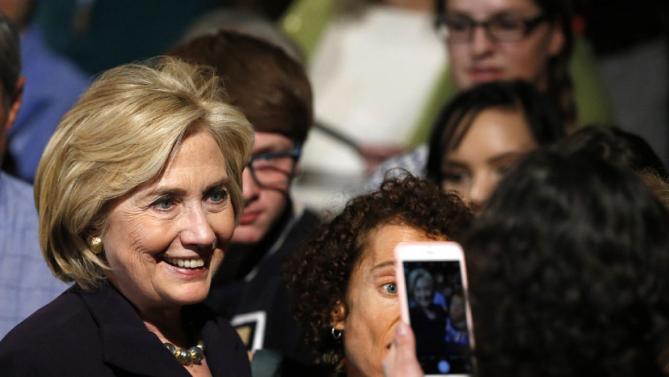
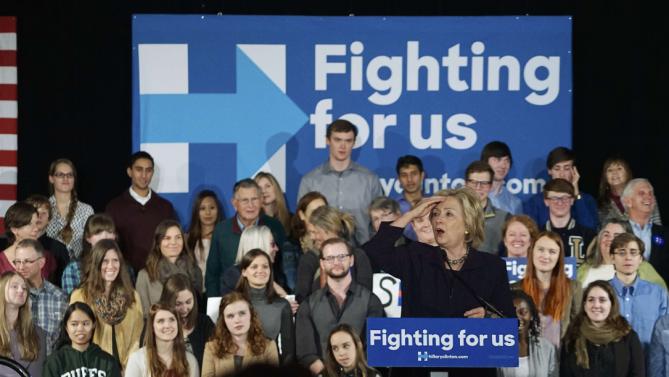
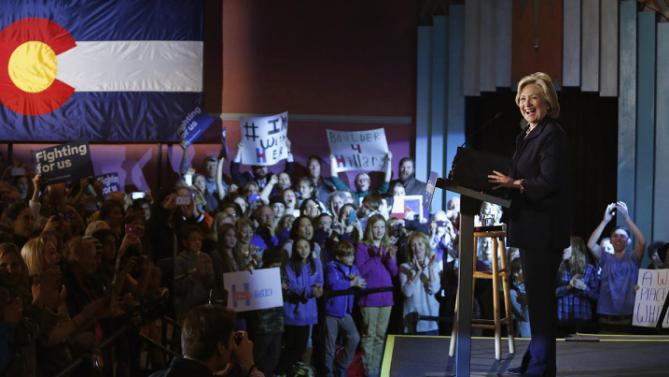
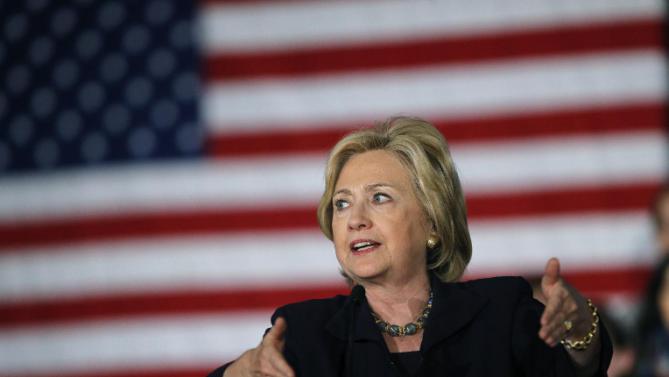
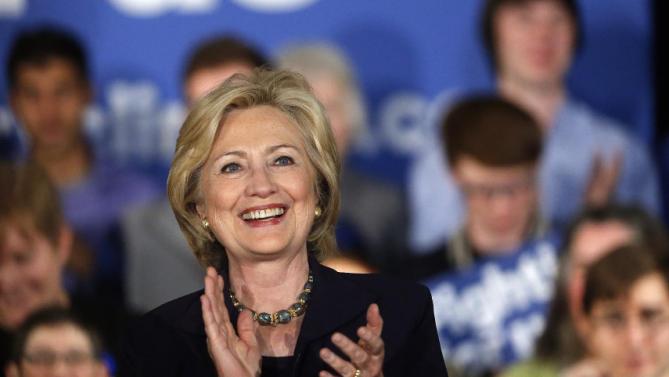
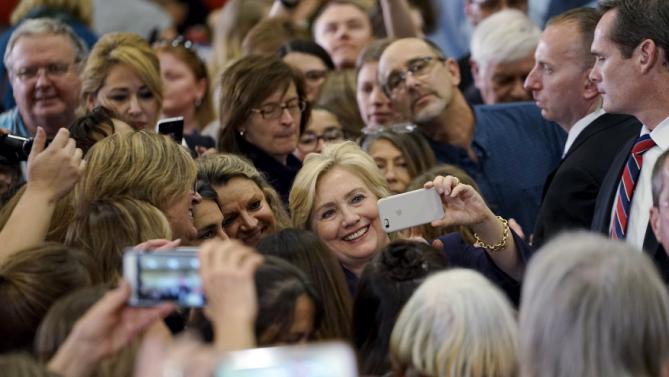
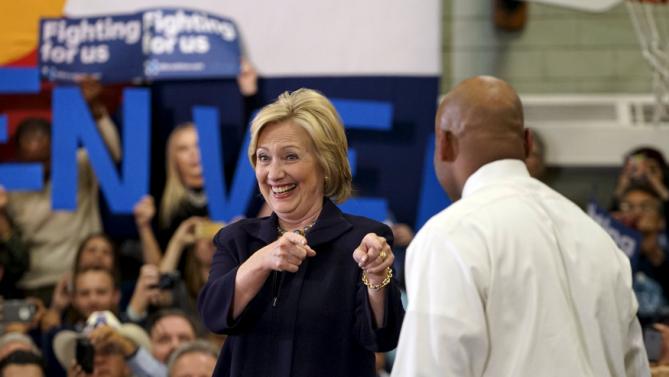
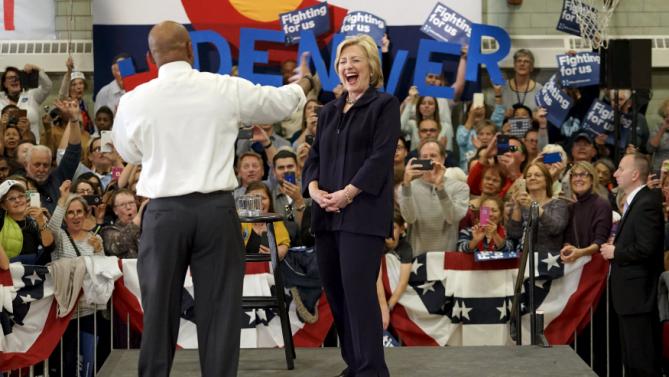

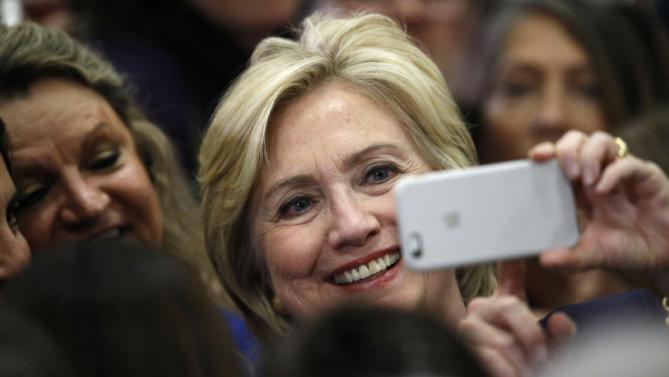
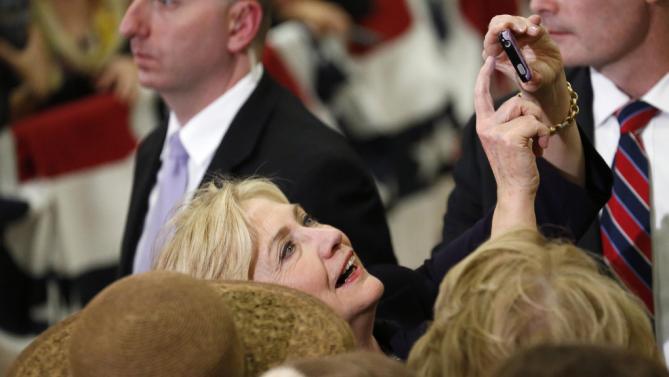
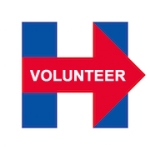


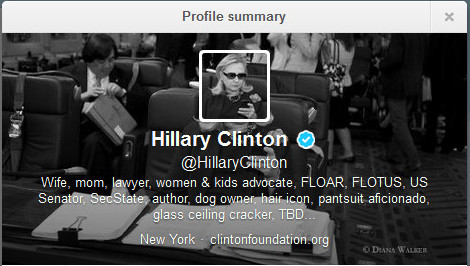
 Hillary Clinton
Hillary Clinton